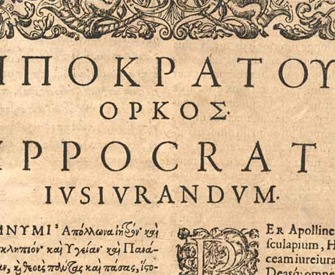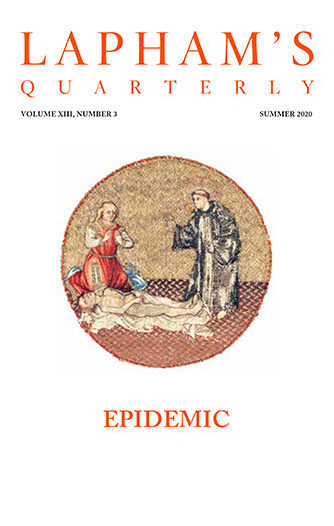Prometheus: When first the gods began their angry quarrel,
and god matched god in rising faction, some
eager to drive old Kronos from his throne
that Zeus might rule—the fools!—others again
earnest that Zeus might never be their king—
I then with the best counsel tried to win
the Titans, sons of Uranus and Earth,
but failed. They would have none of crafty schemes,
and in their savage arrogance of spirit
thought they would lord it easily by force.
But she that was my mother, Themis, Earth—
she is but one although her names are many—
had prophesied to me how it should be,
even how the fates decreed it: and she said
that “not by strength nor overmastering force
the fates allowed the conquerors to conquer
but by guile only.” This is what I told them,
but they would not vouchsafe a glance at me.
Then with those things before me it seemed best
to take my mother and join Zeus’ side:
he was as willing as we were:
thanks to my plans the dark receptacle
of Tartarus conceals the ancient Kronos,
him and his allies. These were the services
I rendered to this tyrant and these pains
the payment he has given me in requital.
This is a sickness rooted and inherent
in the nature of a tyranny:
that he that holds it does not trust his friends.
But you have asked on what particular
charge he now tortures me: this I will tell you.
As soon as he ascended to the throne
that was his father’s, straightaway he assigned
to the several gods their several privileges
and portioned out the power, but to the unhappy
breed of mankind he gave no heed, intending
to blot the race out and create a new.
Against these plans none stood save I—I dared.
I rescued men from shattering destruction
that would have carried them to Hades’ house;
and therefore I am tortured on this rock,
a bitterness to suffer, and a pain
to pitiful eyes. I gave to mortal man
a precedence over myself in pity: I
can win no pity: pitiless is he
that thus chastises me, a spectacle
bringing dishonor on the name of Zeus.
Chorus: Of iron mind he must be, must be made of stone
who does not sympathize, Prometheus, with your sufferings.
Myself, I would not have chosen to look on them;
now that I do, my heart is full of pain.
Prometheus: Yes, to my friends the sight is pitiable.
Chorus: Did you perhaps go further than you have told us?
Prometheus: Yes, I stopped mortals from foreseeing doom.
Chorus: What cure did you discover for that sickness?
Prometheus: I sowed in them blind hopes.
Chorus: That was a great help that you gave to men.
Prometheus: Besides, I myself gave them fire.
Chorus: Do now creatures of a day own bright-faced fire?
Prometheus: Yes, and from it they shall learn many crafts.
Chorus: So it was on such charges as this that Zeus—
Prometheus: Tortures me, gives me no respite from my pains.
Chorus: Is there no term prescribed for your suffering?
Prometheus: None save when it seems good to Zeus himself.
From Prometheus Bound. For his transgressions against Zeus, Prometheus at the play’s start is secured by adamantine chains to “high craggy rocks” at “the world’s limit” and is later cast into the underworld by a lightning bolt. Aeschylus is believed to have written over eighty plays; seven complete tragedies survive, among them his Oresteia trilogy. The epitaph he purportedly composed for himself reads, “The grove of Marathon with its glories can speak of his valor in battle. The long-haired Persian remembers and can speak of it too.”
Back to Issue


